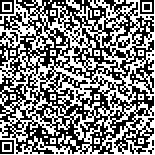| 本文已被:浏览 2905次 下载 870次 |

码上扫一扫! |
|
|
| 基于三明治估计的全国土壤墒情估计方法 |
|
李淑华1,2,3,4, 郝星耀5,2,3,4, 周清波6, 高秉博5,2,3,4, 潘瑜春5,2,3,4
|
|
1.中国农业科学院农业资源与农业区划研究所,北京 100081;2.3.国家农业信息化工程技术研究中心,北京 100097;3.4.农业部农业信息技术重点实验室,北京 100097;4.5.北京市农业物联网工程技术研究中心,北京 100097;5.2.北京农业信息技术研究中心,北京 100097;6.中国农业科学院农业资源与农业区划研究所,北京 100081
|
|
| 摘要: |
| 土壤墒情监测对于科学灌溉、抗旱资源调配均意义重大,文章针对全国范围墒情监测中由于监测点数据少、分布不均及数据点之间关系松散等导致的空间估计效果较差的问题,对全国范围的土壤墒情空间分布规律与空间估计方法展开研究。采用适用于分层异质性表面进行空间估计的三明治估计方法,以全国县域土壤墒情监测数据为采样数据,以全国降水栅格数据与土壤分类数据作为分区数据,以县行政区作为报告单元,实现土壤墒情监测点数据到面数据的上推。采用交叉验证方法对三明治估计效果进行验证,并与距离反比、克吕金、自然临近点和样条4种常规插值方法进行对比。结果表明:三明治估计的误差均值为1.66%,误差标准差为25.16%,墒情等级估计准确率为60.7%; 与其它对比方法相比,三明治估计的结果在误差均值与误差标准差上并没有表现更好,三明治估计的误差均值小于样条插值方法但大于其它方法,误差标准差与距离反比、克吕金及自然临近点方法接近。总体来看,三明治估计能够获得与一般插值方法类似的估计效果,但是由于其更符合土壤墒情空间分布以及采样数据情况,因此其结果更可靠和易于解释,能更好地满足全国土壤墒情监测的应用需要。 |
| 关键词: 三明治估计 土壤墒情 空间插值 异质性表面 分区 |
| DOI:10.7621/cjarrp.1005-9121.20161001 |
| 分类号: |
| 基金项目: |
|
| NATIONWIDE SOIL MOISTURE ESTIMATION BASED ON SANDWICH SPATIAL ESTIMATION METHOD IN CHINA |
|
Li Shuhua1,2,3,4, Hao Xingyao5,2,3,4, Zhou Qingbo6, Gao Bingbo5,2,3,4, Pan Yuchun5,2,3,4
|
|
1.Institute of Agricultural Resources and Regional Planning,Chinese Academy of Agricultural Sciences,Beijing 100081,China;2.3.National Engineering Research Center for Information Technology in Agriculture,Beijing 100097,China;3.4.Key Laboratory of Agri-informatics,Ministry of Agriculture,Beijing100097,China;4.5.Beijing Engineering Research Center of Agricultural Internet of Things,Beijing 100097,China;5.2.Beijing Research Center for Information Technology in Agriculture,Beijing 100097,China;6.Institute of Agricultural Resources and Regional Planning,Chinese Academy of Agricultural Sciences,Beijing 100081,China
|
| Abstract: |
| Soil moisture monitoring is essential for scientific irrigation and drought resisting resource deployment. But in the current technology circumstance, it is difficult to survey soil moisture in large scale. The indirect estimation and derivation are main approaches to obtain soil moisture information. Remote sensing and spatial interpolation provide effective schemes to estimate soil moisture with affordable sampling quantity. But these two methods have some flaws in large scale application. Remote sensing estimation is susceptible to the effects of topography and vegetation. Further, specific remote sensing techniques and retrieval model can only be applied to a particular condition. On the other hand, ordinary interpolation methods are not applicable in large scale because the sampling points are insufficient and relationship between known points and unknown points is loose. In this paper, the spatial distribution characteristic of soil moisture in large scale was analyzed usingthe sandwich estimation method and the soil moisture surface was zoned into homogeneous subareas based on relevant knowledge and data. The soil type zones and precipitation data were used to partition the estimation region into some homogeneous zones, in which the soil moisture could be regarded asthe same. The reporting units were independent to the zoning and sampling layer, and could be changed without resampling or recalculate homogeneous zones. In order to evaluate the performance of sandwich estimation, cross validation method was used and compared with the other four empirical interpolation methods, including IDW, kriging, natural neighbor and spline. The results showed that the mean error was 1.66%, the standard deviation was 25.16%, the accuracy rate of moisture level estimation was 60.7%; the sandwich method effectively estimated the no-value area and was correspond with sampling data. The comparison results showed that the sandwich estimation had same performance asother methods. The mean error of sandwich estimation was less than that of the spine interpolation. The standard deviation of sandwich method was close to that of IDW, kriging, and natural neighbor. Overall, the sandwich estimation performed as well as other interpolation methods which frequently used in soil moisture monitoring. But the sandwich estimation was far superior for computational simplicity and multi-unit reporting. The sandwich estimation method can be better applied in the soil moisture estimation in nation-wide. |
| Key words: sandwich estimation soil moisture spatial interpolation heterogeneous surface zoning |

